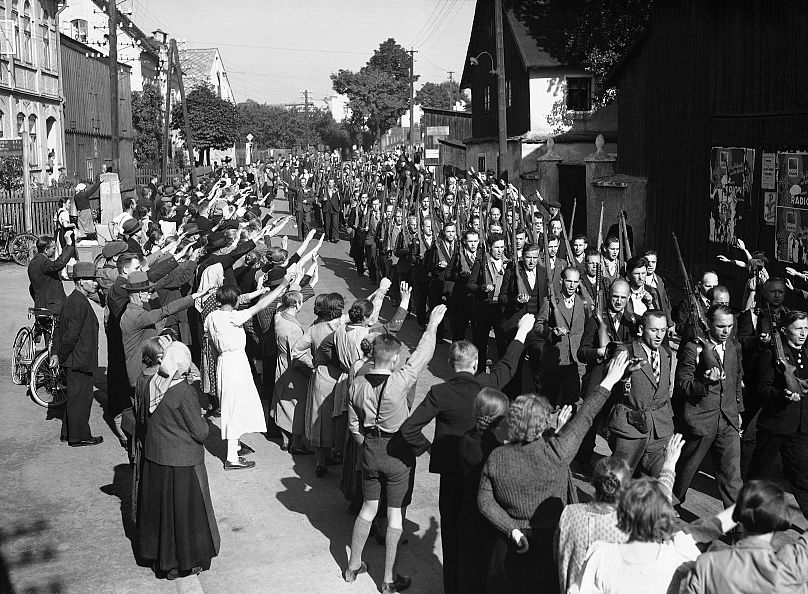What does the hand gesture say? A bit too much, according to authorities in the German city of Bremen who fear its links with a far-right Turkish nationalist movement.
Officials have banned the “silent fox” hand gesture from use in schools due to its association with the Turkish nationalist movement.
The silent fox gesture – made by lifting the index and little finger while pinching together the middle and ring finger with your thumb – has been used throughout Europe as a teaching method to quiet classrooms.
But the silent fox is to be phased out of use in day cares and schools in the German city of Bremen due to its visual similarity to the “wolf salute”, a political symbol of the Grey Wolves (Ülkü Ocakları) and the Nationalist Movement Party in Türkiye.
The controversial wolf salute gesture represents a combination of Turkishness and Islam by the Grey Wolves, a Turkish far-right political group that has been described as a “death squad” and “terrorist organisation” for its reported association with political violence.
Austria banned the wolf salute gesture in 2019, with France following suit. While the gesture hasn’t been outright banned in Germany, the move by Bremen authorities is a significant shift towards the approach of its neighbours.
The wolf salute hit headlines earlier this month when Turkish footballer Merih Demiral was banned for two games by UEFA after he used the gesture to celebrate scoring against Austria in the Euros.
Demiral claimed it was an expression of Turkish pride while Germany’s interior minister Nancy Faesar said: “To use the football championships as a platform for racism is completely unacceptable.”
Turkish President Recep Tayyip Erdoğan responded to what he considered the hypocrisy of the ruling by UEFA: “Does anybody ask why the German national jersey has an eagle, or the French jersey a rooster?”.
Erdoğan has been criticised for his own use of the wolf salute. In 2018, he briefly showed the gesture at a campaign rally in Mersin which political commentators viewed as an attempt to corral the far right nationalists to his voter base.
If the wolf salute were to be fully banned in Germany, it would join the Sieg Heil – the salute popularised as a show of obedience to Adolf Hitler – as an illegal gesture. It is also a criminal offence to use the Sieg Heil in Austria, Slovakia and Italy, with it constituting as hate speech in most of the rest of Europe.

















